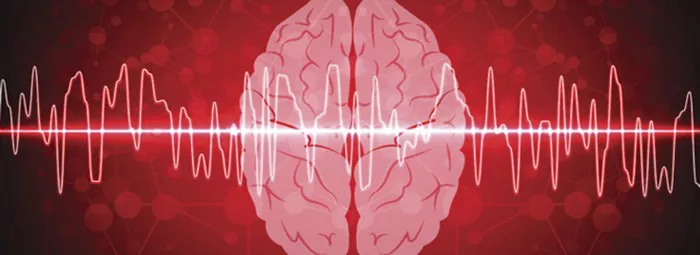Atrial fibrillation (AFib) is the most common type of treated heart arrhythmia, according to the American Heart Association. AFib occurs when the heart’s two upper chambers (the atria) beat chaotically and irregularly — out of coordination with the two lower chambers (the ventricles) of the heart. The condition is serious and can lead to blood clots, stroke, heart failure, and other heart-related complications. While the medical community understands the mechanisms and risk factors associated with AFib, the potential role of stress as a causative factor requires a nuanced examination. This article delves into the relationship between stress and AFib, exploring the existing research, potential mechanisms, and practical implications for prevention and management.
The Nature of Stress and Its Bodily Impact
To understand how stress might lead to or exacerbate AFib, it is crucial to first grasp what stress is and how it affects the body. Stress is the body’s reaction to any change that requires an adjustment or response. The body reacts to these changes with physical, mental, and emotional responses. Stress is a part of everyday life and can stem from any situation or thought that makes you feel frustrated, angry, nervous, or anxious.
Stress is often categorized into two types: acute stress and chronic stress. Acute stress is short-term and is the body’s immediate response to a perceived threat or challenge. Chronic stress, on the other hand, is stress that persists over a longer period. It is this chronic stress that is more likely to lead to health problems, including cardiovascular issues.
Linking Stress and AFib: What Does the Research Say?
Research suggests a complex relationship between stress and the development of atrial fibrillation. Studies have indicated that individuals with chronic stress or anxiety disorders have a higher incidence of AFib. The potential mechanisms behind this relationship are multifaceted, involving both direct and indirect pathways.
One of the primary theories is that stress triggers the autonomic nervous system, which controls heart rate and rhythm. The activation of the stress response (often called the “fight or flight” response) leads to the release of stress hormones like adrenaline, which can increase heart rate and, over time, may predispose the heart to arrhythmias like AFib.
Moreover, stress can lead to elevated blood pressure and inflammation, both of which are recognized risk factors for atrial fibrillation. Chronic stress can also have a detrimental effect on the heart by causing changes in the heart’s electrical system, making it more susceptible to arrhythmias.
Psychological Stress and AFib: A Bidirectional Relationship?
The relationship between psychological stress and AFib is potentially bidirectional. Not only can stress contribute to the onset or exacerbation of AFib, but the diagnosis and management of AFib can also lead to significant stress and anxiety for patients. This creates a vicious cycle where stress exacerbates AFib, and AFib, in turn, increases stress levels.
Managing this cycle is crucial for patients with AFib. Strategies that reduce stress, such as mindfulness, meditation, and cognitive-behavioral therapy, have been shown to improve outcomes for patients with AFib. These approaches help break the cycle by managing the psychological response to both stress and the condition itself.
Evaluating the Evidence: Clinical Studies and Findings
Several clinical studies and meta-analyses have investigated the connection between stress and AFib. A notable study published in the “Journal of the American College of Cardiology” found that high levels of psychological stress were associated with a higher risk of atrial fibrillation. Another research article in the “European Heart Journal” pointed out that even after controlling for other risk factors, stress remained a significant predictor of AFib.
These studies, among others, provide compelling evidence that stress management may be a valuable component of AFib prevention and treatment strategies. However, it is also clear that more research is needed to fully understand the mechanisms at play and to develop targeted interventions.
Managing Stress to Prevent or Mitigate AFib
Given the potential link between stress and AFib, adopting stress management techniques can be an integral part of preventing or managing AFib. Techniques such as mindfulness-based stress reduction (MBSR), yoga, deep breathing exercises, and regular physical activity have been shown to reduce stress levels and may be beneficial for individuals with or at risk for AFib.
Additionally, lifestyle modifications such as maintaining a healthy diet, getting adequate sleep, limiting caffeine and alcohol intake, and quitting smoking are essential. These changes can help mitigate the overall risk of developing AFib, partly by reducing the impact of stress on the body.
Conclusion
The relationship between stress and AFib is complex and multifactorial. While stress alone is unlikely to be the sole cause of AFib, evidence suggests it plays a significant role in the onset and progression of the condition. Understanding this relationship is crucial for both patients and healthcare providers as they work together to manage AFib effectively.
Future research should aim to unravel the intricate biological mechanisms linking stress and AFib, facilitating the development of more comprehensive prevention and treatment strategies. Meanwhile, individuals can take proactive steps to manage stress, potentially reducing their risk of AFib and improving their overall heart health. As with many aspects of health, a holistic approach that includes stress management, lifestyle modification, and medical treatment as needed is likely to be most effective in preventing and managing atrial fibrillation.


